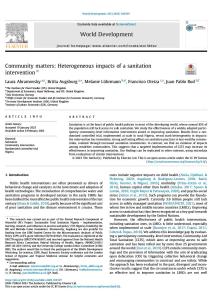Presentation
This webinar, co-organised by the Federal Ministry of Water Resources (FMWR), Covenant University (Nigeria), The World Bank, Royal Holloway University of London (RHUL, UK), and IFS, aimed to provide a platform for a deep dive on relevant evidence and lessons learnt from Nigeria and elsewhere to inform the Clean Nigeria Campaign.







































